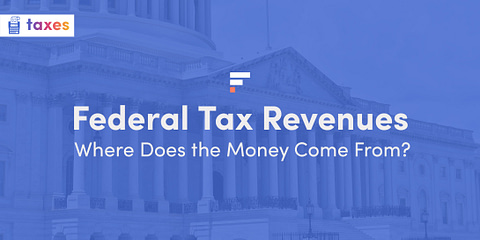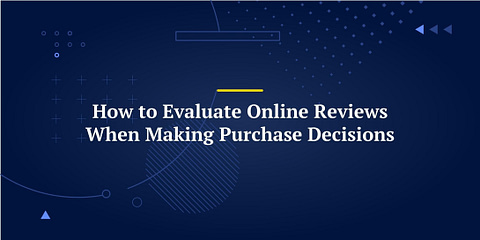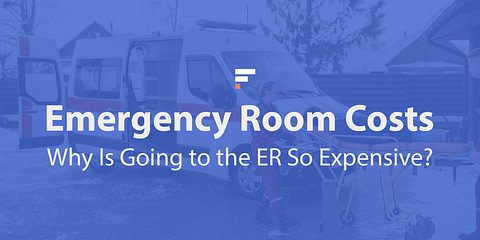As the saying goes, nothing in the world is certain except death and taxes. The other thing they have in common? It’s important to be financially prepared for both. Funeral costs can be substantial, and you need to plan for them.
Planning ahead for your own death expenses can sound a little morbid or even intimidating. You have to save for all your regular life expenses, emergencies, and retirement—and now you even need to budget for your funeral costs? Or perhaps you’re facing the sad responsibility of planning a funeral for a loved one, and you aren’t sure where to start in the midst of your grief.
It’s a topic that many people don’t want to dwell on too heavily, but knowing your options can give you and your family peace of mind about the future. The costs of funerals, burials, and memorial events can vary wildly depending on your preferences and choices, so let’s dive in.
Traditional Funeral Costs
💸 Average funeral service, burial, and cemetery cost: $10,000-$20,000
Most Americans hear “funeral” and think of a certain traditional experience. There’s a viewing at a funeral home with an open or closed casket. There’s a ceremony with speeches, a graveside interment, and a reception with food and drinks. This is an involved process that obviously comes with significant costs.
The basics include transportation, embalming, caskets, funeral services, and cemetery plots. Some cemeteries also require a special vault rather than just a casket, which can cost up to $2,500 more. Then there are headstones, flowers, and other optional extras that can be as simple or extravagant as you choose.
Let’s break it down and consider all the average individual expenses a traditional funeral and burial can involve:
- Cemetery plot: $1,500-$2,500
- Headstone/marker: $500-$4,000
- Casket: $2,400 (fancier options can be up to $10,000+)
- Grave liner or vault: $500-$2500
- Embalming + preparation: $1,000
- Funeral home services and facilities: $3,000
- Hearse + transportation: $650+
- Funeral flowers: $100-$700
- Printed memorial materials: $150-$175
You can save on most of these options by choosing the options on the simpler/cheaper end of each spectrum.
Cremation Costs
💸 Average: $1,000-$3,000 (cremation only)
“Ashes to Ashes” has a certain poetry to it. Cremation means your remains can be scattered in a beautiful place that’s meaningful to you. It’s also much cheaper than cemetery burial, although the costs will increase if a funeral ceremony is added. If the family wants an urn to store the ashes ($75-$350), even the highest-end vessel is much cheaper than a casket and cemetery plot.
Mausoleum/Crypt Burial Costs
💸 Average: $4,000-$100,000+ (for family crypt)
If you prefer a clean, dry space inside a building your family can visit, a mausoleum or crypt might be your preferred choice. Community mausoleums are on the cheaper end, with entombment per space starting at around $4,000. You can also share a crypt with other family members, dividing costs that can run into the tens to hundreds of thousands.
Green Burial Costs
💸 Average: $1,000-$4,000
In recent years, green burials have been growing in popularity. Also called “natural burials,” they focus on simple, planet-friendly practices that return the body to nature. This translates to using biodegradable coffins or fabric shrouds with no embalming chemicals. Green burials don’t use steel vaults or ornamental marble headstones, and so on. All of these changes have the welcome side effect of making burials much cheaper.
To prepare for this, you’ll need to locate a green cemetery or natural burial preserve. In lieu of a headstone, think about your favorite flowers and plants as a way to mark your resting place.
One related up-and-coming option is “recomposting,” where bodies are turned into the soil in reusable containers rather than being permanently interred. This soil can then be used to plant trees or start flower gardens where new life can grow.
Donation to Science
💸 Average: Free (but you must plan ahead)
Donating your body to science can be a wonderful (and typically free) option. When the study is concluded, many organizations will provide a free cremation and give your ashes to your family.
Specific eligibility requirements depend on your location and the individual organizations and programs you’re considering. If you want to register as both an organ donor and a whole-body donor, you’ll need to register separately with each organization. You’ll need to do paperwork and let your family know what steps to take. Donation is time-sensitive, so you’ll need to be prepared.
Memorial Ceremony/Celebration of Life Costs
A ceremony for family and friends is a separate consideration. The specifics of every memorial are deeply personal, so these costs are all up to those planning it. It could be a celebration that focuses on reminiscing over memories and sharing the loved one’s favorite meal. It could be a religious ceremony or an Irish wake where the alcohol flows freely. It’s a chance to throw a final event that reflects what you loved in life and let people say goodbye.
💡 If you have a preference for your memorial ceremony, let your loved ones know in advance. Write down your wishes to be stored somewhere they can easily access.
County & State Funeral Assistance
What if a family can’t afford a funeral for their loved one, or the deceased didn’t have money set aside?
In this case, the family can typically sign a release with the coroner releasing the body for burial or cremation through the county or state. In the case of cremation, families can often collect the ashes for a small fee.
There are also nonprofits that can help with funeral expenses, or fundraising platforms where friends and loved ones can contribute toward the burial costs.
How to Plan Ahead and Save for Funeral Costs
Planning ahead for death expenses doesn’t have to be a whole separate job. If you have life insurance, find out whether it covers funeral expenses and if so, how much. If you don’t have life insurance but are shopping around for a policy, that could be one more thing on your checklist.
You may not plan to get life insurance. If that’s the case, you can simply tack on end-of-life expenses while planning the rest of your financial future. Be sure to consider end-of-life costs when you develop your retirement financing plan.
Keeping in mind all the options and costs you’ve read about above, use the tips below to start making your plan.
- Determine your preferences and research the expenses. What kind of burial do you want? Do you want to have a couple of bottles of your favorite expensive whiskey for your friends to send you off? If your choice is a traditional burial, do you want a simple casket or brushed mahogany with more bells and whistles? Call funeral homes to compare their rates and get an idea of who you’d prefer to use.
- Don’t prepay for funeral packages. Many funeral homes advertise prepaid plans as a way to take a burden off your loved ones. This usually isn’t wise. Any number of things can change between now and then, so you don’t want to be locked into one specific plan. The funeral home could go out of business, or you could move, etc.
- Write down your burial and ceremony wishes in a special final arrangements document or letter. Legal experts advise not doing this in your will, which typically isn’t consulted immediately when loved ones are planning.
- Have payment logistics figured out. If you have life insurance, will they pay out quickly enough or will your loved ones need to pay for a funeral out of pocket and wait for reimbursement? Either way, consider setting up a Payable On Death (POD) savings account that immediately transfers to a person of your choice, so they can access this money for funeral expenses. (Note that a POD recipient is not required to spend this money in a certain way when they gain ownership, so this should be a person you trust!)
- Make a will to designate your beneficiaries and divide up your assets. Consult a simple checklist about what information to include in this.
If you’re planning ahead on behalf of a loved one who is at risk of death but may not be able to face this process themselves, try to have gentle conversations to glean the most important information. This could include information about their financial accounts, where they might like to be laid to rest, and any other wishes. If they don’t express any preferences, the funeral and memorial decisions will fall to you and other next of kin. Your loved one may also be willing to designate you as their Power of Attorney, giving you the ability to make legal, financial, and health care decisions for them. Making preparations before their death can help to lighten the burden once the day arrives.
Ultimately, instead of feeling like it’s morbid or frightening, many people find that planning ahead helps ease their minds about this final stage. Ignoring the reality of death won’t make it go away, but having the logistics prepared can take away stress, give your loved ones a smoother transition, and ensure you’ll be remembered the way you want to be.
























